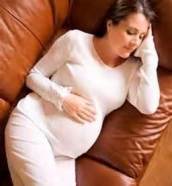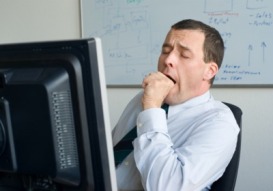 Women who have sleep apnea face a greater risk of health problems during pregnancy. New studies have emerged linking sleep apnea with various health problems such as preeclampsia, a very dangerous condition of high blood pressure during pregnancy. Women who experience preeclampsia will more likely give birth by ceasarian section rather than normally. In a new study led by author Dr. Judette Louis, a maternal-fetal medicine specialist and assistant professor of obstetrics and gynecology at the University of South Florida, the risk for preeclampsia reportedly doubles for women who are obese. The research team gave a portable home-sleep testing device to 175 obese pregnant women. The device showed that 15% of the women had sleep apnea, and that these women were more overweight and had chronic high blood pressure as compared to those who tested negative for sleep apnea.
Women who have sleep apnea face a greater risk of health problems during pregnancy. New studies have emerged linking sleep apnea with various health problems such as preeclampsia, a very dangerous condition of high blood pressure during pregnancy. Women who experience preeclampsia will more likely give birth by ceasarian section rather than normally. In a new study led by author Dr. Judette Louis, a maternal-fetal medicine specialist and assistant professor of obstetrics and gynecology at the University of South Florida, the risk for preeclampsia reportedly doubles for women who are obese. The research team gave a portable home-sleep testing device to 175 obese pregnant women. The device showed that 15% of the women had sleep apnea, and that these women were more overweight and had chronic high blood pressure as compared to those who tested negative for sleep apnea.
Sleep apnea puts not only the mother’s life at risk, but also that of her baby. The same study analyzed more than 150 live births by women with sleep apnea and found that babies born to these mothers were more likely to be admitted into the neonatal intensive care unit due to respiratory distress.
Another scary health problem which can arise during pregnancy is gestational diabetes. Research shows that women who have sleep apnea face a greater risk for gestational diabetes and the risk doubles when the woman is obese.
Aside from obesity, another reason pregnant women may be at risk for sleep apnea is due to the many hormonal changes that the body undergoes during pregnancy. Weight gain and hormonal imbalance may all contribute to difficulty in breathing.
With all this information at hand, it has become more important than ever to screen pregnant women for sleep apnea to protect mother and baby.


